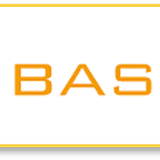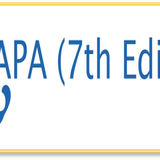Pengaruh Variabel Makroekonomi Terhadap Jumlah Penghimpunan Zakat Di Indonesia
DOI:
https://doi.org/10.24912/je.v25i2.652Abstract
Purpose this study analyzes the effect of the industrial production index, the dollar exchange rate, inflation and the BI 7DRR on the amount of zakat collection from January 2015 to December 2018to identify the potential of zakat to support alleviation in Indonesia. Methodology approach: This study uses a quantitative approach with a Vector Error Correction Model (VECM) data analysis technique with time-series data from Januari 2015 t0 December 2018. Findings: The results show that in short term causality, there is an effect between long-term and short-term between zakat as the dependent variable with inflation and the dollar exchange rate. However, there is no short-term causality effect between BI 7-DRR and IPI to the amount of zakat while the long-term causality effect, all independent variables have a significant effect to the dependent variable namely zakat. Implications: The integration of Islamic philanthropic institutions has the potential to channel aid and support to alleviate poverty. This study adds the IPI variable to interpret the GDP variable in analyzing its effect on zakat.
References
Abduh, M., Omar, M. A., and Duasa, J. (2011). The Impact of Crisis and Macroeconomic Variables towards Islamic Banking Deposits Department of Business Administration Department of Economics , Kulliyah of Economics and Management Sciences , International Islamic University , Malaysia. 8(12), 1413–1418.
Acunto, F. D., Hoang, D., and Weber, M. (2015). Inflation Expectations and Consumption Expenditure ∗. February.
Afrida, Y., dan Iskandar, R. (2018). Pengaruh inflasi, kurs, tingkat suku bunga, pertumbuhan ekonomi, dan jumlah uang beredar terhadap jumlah dpk bank syari’ah yenti afrida.
Akhtar, B., Akhter, W., & Shahbaz, M. (2017). Determinants of deposits in conventional and Islamic banking: a case of an emerging economy. International Journal of Emerging Markets, 12(2), 296–309. https://doi.org/10.1108/IJoEM-04-2015-0059.
Al-Sharif, B. M., Qwader, A., and Fattah Al-Slehat, Z. A. (2017). The Effect of Promotion Strategy in the Jordanian Islamic Banks on a Number of Customers. International Journal of Economics and Finance, 9(2), 81. https://doi.org/10.5539/ijef.v9n2p81.
Aysan, A. F., Disli, M., Duygun, M., and Ozturk, H. (2018). Religiosity versus rationality: Depositor behavior in Islamic and conventional banks. Journal of Comparative Economics, 46(1), 1–19. https://doi.org/10.1016/j.jce.2017.03.001.
Bascand, G., Browne, C., Debelle, G., Robinson, D., Samiei, H., & Singh, A. (1997). IMF Working Paper © 1997. 1–25.
Dash, S. K., and Kumar, L. (2018). Does Inflation Affect Savings Non-linearly? Evidence from India. Margin, 12(4), 431–457. https://doi.org/10.1177/0973801018786155.
Demiralp, S. (2015). The rational Islamic actor ? Evidence from Islamic banking New Perspectives on Turkey Perspectives on Turkey : The rational Islamic actor ? Evidence from Islamic. May, 1–27. https://doi.org/10.1017/npt.2014.1
Dendawijaya, Lukman .(2009). Manajemen Perbankan. Jakarta : Ghalia Indonesia
Kincaid, M., Jr. (2003). Promotion, Product, Service and Ideas(6th ed.). Columbus, Hoi, Bell 7, Howell Co.
Kemenkeu. (2020). Kementrian Keuangan Republik Indonesia. Retrieved Feb 20, 2020 from https://www.kemenkeu.go.id/sukukritel.
Lestari, P. (2009). Efektivitas Pengaruh Besaran Biaya Promosi Dalam Penghimpunan Dana Pihak Ketiga. Al-Iqtishad: Jurnal Ilmu Ekonomi Syariah, 1(2), 1–32. https://doi.org/10.15408/aiq.v1i2.2461.
Mimouni, K., Smaoui, H., Temimi, A., and Al-Azzam, M. (2019). The impact of Sukuk on the performance of conventional and Islamic banks. Pacific Basin Finance Journal, 54(June 2018), 42–54. https://doi.org/10.1016/j.pacfin.2019.01.007.
Mushtaq, S., and Siddiqui, D. A. (2017). Effect of interest rate on bank deposits: Evidences from Islamic and non-Islamic economies. Future Business Journal, 3(1), 1–8. https://doi.org/10.1016/j.fbj.2017.01.002.
Nachrowi, Nachrowi Djalal dan Hardius Usman. (2002). Penggunaan Teknik Ekonometri. Jakarta : PT.RajaGrafindo Persada
OJK. (2019). Otoritas Jasa Keuangan : Laporan Perkembangan Keuangan Syariah Indonesia.
Razak, S. S., Saiti, B., and Dinç, Y. (2019). The contracts, structures and pricing mechanisms of sukuk: A critical assessment. Borsa Istanbul Review, 19, S21–S33. https://doi.org/10.1016/j.bir.2018.10.001.
Rose, P and Sylvia hudgins .(2010). Bank Management and Financial Service, McGraw-Hill Irwin, New York, NY.
Said, M., dan Ali, H. (2016). An analysis on the factors affecting profitability level of Sharia banking in Indonesia. Banks and Bank Systems, 11(3), 28–36. https://doi.org/10.21511/bbs.11(3).2016.03.
Saunders, A. and Cornett, M.M. (2010). Financial Markets and Institutions: A Modern Perspective, McGraw-Hill Irwin, New York, NY.
Smaoui, H., and Ghouma, H. (2020). Sukuk market development and Islamic banks’ capital ratios. Research in International Business and Finance, 51(17), 101064. https://doi.org/10.1016/j.ribaf.2019.101064.
Smaoui, H., Mimouni, K., and Temimi, A. (2017). Sukuk, banking system, and financial markets: Rivals or complements? Economics Letters, 161, 62–65. https://doi.org/10.1016/j.econlet.2017.09.014.
Sufian, F. (2011). Profitability of the Korean Banking Sector : Panel Evidence on Bank-Specific and Macroeconomic Determinants 1 Introduction. 7(1), 43–72.
Sukmana, R. (2019). A critical assessment of retail sovereign sukuk in Indonesia. Qualitative Research in Financial Markets. https://doi.org/10.1108/QRFM-10-2018-0109.
Susanti, V. (2015). Pengaruh Equivalent Rate dan Tingkat Keuntungan Terhadap Dana Pihak Ketiga ( DPK ) Perbankan Syariah di Indonesia. 1(1), 113–132.
Sutono, dan Kefi, B. S. (2012). Pengaruh Faktor Makro Ekonomi Terhadap Penghimpunan Dana Pada Bank Umum di Indonesia. Jurnal EkonomiManajemen Akuntansi, 20 (4): 1-12.
Thomson Reuters and Dinar Standard. (2018). State of the Global Islamic Economy Report 2019/20. Dubai International Financial Centre, 112. https://haladinar.io/hdn/doc/report2018.pdf.
Yaya, R., dan Sofiyana, E. (2018). Pengaruh Sukuk Ritel Pemerintah Terhadap Penghimpunan Dana Pihak Ketiga Bank Syariah. Media Riset Akuntansi, Auditing & Informasi, 18(2), 153. https://doi.org/10.25105/mraai.v18i2.3096.
Downloads
Published
How to Cite
Issue
Section
License
Copyright (c) 2020 Jurnal Ekonomi

This work is licensed under a Creative Commons Attribution-NonCommercial-ShareAlike 4.0 International License.
This journal provides immediate open access to its content on the principle that making research freely available to the public supports a greater global exchange of knowledge.

This work is licensed under a Creative Commons Attribution-NonCommercial-ShareAlike 4.0 International License.
Similar Articles
- Nyoman Suprasta, Nuryasman MN, Faktor-Faktor Yang Mempengaruhi Pengambilan Keputusan Investasi Saham , Jurnal Ekonomi: Vol. 25 No. 2 (2020): July 2020
You may also start an advanced similarity search for this article.


















